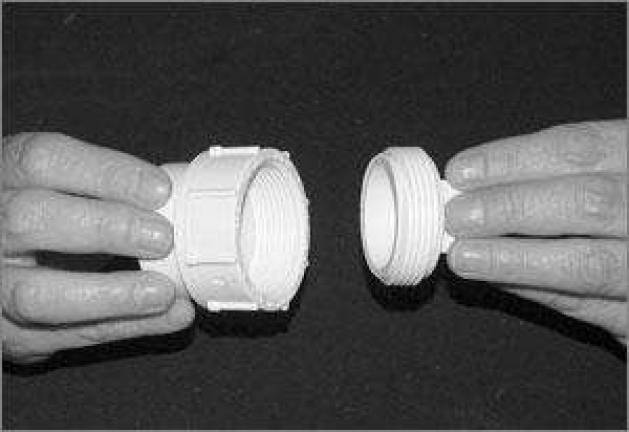New sewage regs don't screw around

DINGMAN - In Dingman Township a 65-cent plastic screw in a pipe cap could cost homeowners $500 and it’s got nothing to do with the Defense Department. Dingman Township Sewage/Zoning Enforcement Officer Chris Wood reported to the Dingman Township Board of Supervisors Tuesday about a recent seminar he attended in Harrisburg. The Department of Environmental Protection has the authority to change their “technical decision making policies” regarding sewage code enforcement and they have changed their interpretation of a sewage code requirement defining whether a procedure is considered a “repair” or a “modification.” On some septic systems there is a plastic screw in the end cap on lateral clean-out pipes. This end cap is sometimes broken or chipped while a homeowner is lawn-mowing. Replacing the 65-cent cap takes a few seconds, but it is now considered a “modification” by the state and requires a permit. This means a sewage enforcement officer has to be present when a new cap is screwed on. A sewage enforcement officer was required to watch an end cap being screwed in the event that the mower impacting with the end cap had caused damage further down the lateral pipe. Townships needed to be aware of any possible leakage that might take place. “In my expert opinion and from years of experience, this is getting carried away and a little ridiculous,” said Wood. Wood told the supervisors that this new interpretation is creating problems around the state. Matamoras Borough has a permit fee of $85 for modifications to septics. In one township in Tioga County the fee is $360 for the same permit. Wood explained that while Dingman sewage enforcement officers are salaried employees, in other townships the permit fees have to cover their wages and any related township expenses. Similarly, changing a septic pump has always been considered maintenance and not modification, as the systems are designed to allow the homeowner to do this. This also requires a permit now. So, if a septic pump burns out on a Sunday and a “pumper” is called, it will have to wait until Monday when a permit is available and a sewage enforcement officer is available to watch the work, Wood said. “I have sent memos out to all the “pumpers” in order to make them aware of the new requirements and the $500 minimum fines for violations,” Wood told the supervisors. If a homeowner reports that his neighbor either replaced the end cap or changed his pump the real possibility of a fine for “failure to get a permit” exists, he added.